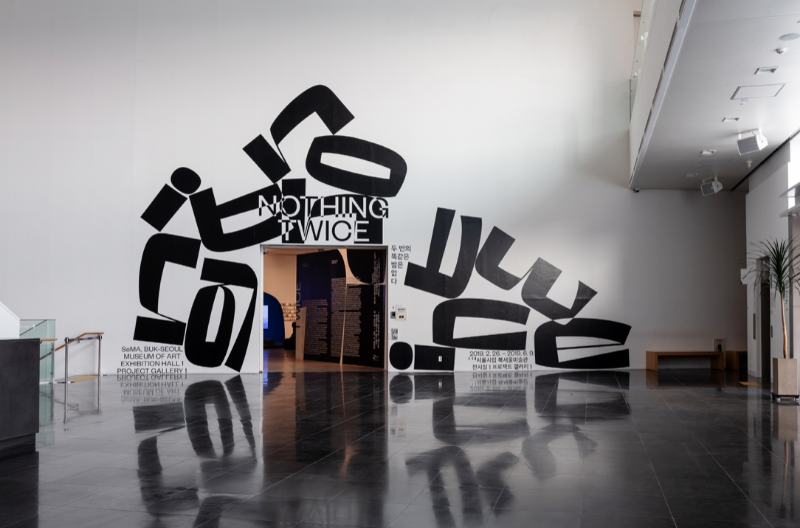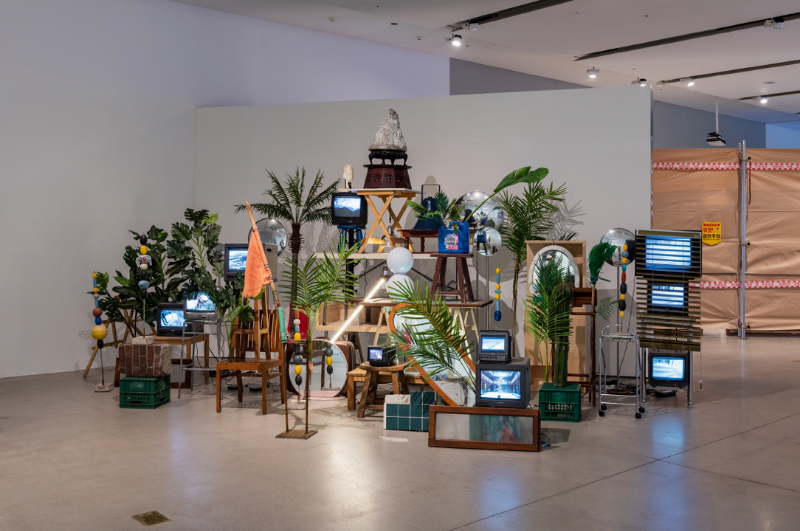
| Period| | 2019.02.26 - 2019.06.09 |
|---|---|
| Operating hours| | [Final (Four-Four) 10AM to 8PM [Saturday, Sunday, holiday] Summer Season (March - October) 10AM - 7PM Winter Season (Nov |
| Space| | Seoul Museum of Art in Bukseoul/Seoul |
| Address| | 1238, Dongil-ro, Nowon-gu, Seoul, Republic of Korea |
| Closed| | Monday, January 1 |
| Price| | Free |
| Phone| | 02-2124-5248 |
| Web site| | 홈페이지 바로가기 |
| Artist| |
리혁종,매거진쓸,아워레이보,엄아롱,여운혜
|
정보수정요청



|
|
Exhibition Information




The Northwest Wall Museum of Art in Seoul will hold its first exhibition in 2019, "There will be no two identical nights of 2019 Seoul Focus!" The Seoul Focus has selected a specific theme each year to reflect contemporary trends in art and expand the identity of the community-friendly Northwest Wool Museum. At the Seoul Focus, 40 works by 14 artists (team) will be conducted to examine the damaged global ecosystem and human life under the capitalist system in the language of art. The endless pursuit of profits and short-sighted growth of the capitalist system are cracking down on the earth's ecology, threatening the survival of the majority of the species, including humans. The air and water we drink have already been polluted with fine particles, and abnormal temperatures have become normal. These signs of disaster testify that the Earth's self-control capability is at its limit. Man's formidable technology and globalization have made the scale of disasters beyond the state and continent. The possibility of a disaster growing at a tremendous scale and speed beyond our cognizance and control is already here. Now that we discuss the advent of a new geological era with the ecological changes that mankind has brought to earth, we are going to ask through this exhibition how to accept the disasters of this age and what to do to increase the viability of all living things. The exhibition introduces various aesthetic attempts to find change in the global ecological crisis in three levels. On the first floor, we present works featuring a variety of perspectives and ways of thinking about things consumed and abandoned in neo-liberalistic societies (Yum Ji-hye, Lee Mi-hye, Yeo Un-hye, the Zest Project × Lieson Tudity, Um Ah-rong). On the second floor, we talk about life attitudes and artistic practices that move away from human-centered life and seek ways to coexist with Earth and all living things (Li Hyuk-jong, Wuhan, Sujeong, daily practice, Auraibo, and Magazine writing). On the last level, imagine a new community of figures joining forces to bring about change in a crisis, sparking and burning conflicts while maintaining loose relationships (e.g., the stork, Kim Myung-jin × Kim Ji-young). The millennial generation's play and festivities, which burst out in the place where the three tiers are covered, are distinct from the public interest campaigns of the older generation, and show a 'small but important sustainable possibility of life.' The Seoul Focus was designed to explore the ecological problem and the underlying consumption culture and capitalism, starting with the garbage problem that emerged last year. The exhibition title 'There are no two identical nights' was taken from a passage from the poem "There are no two," by the Polish poet Wisawa Szymborska. Every night, stars with different flashes in the new colors of darkness ask what the value and meaning of their disappearing existence is. Recognizing and rethinking the finiteness of life and the uniqueness of life will be the foundation to restore the damaged global ecosystem. Hopefully, this exhibition will be an opportunity to face up to the disasters of our time and to think about the peaceful coexistence of the earth and mankind.
